NEWS
Inaugural Dean’s Faculty Fellows announced
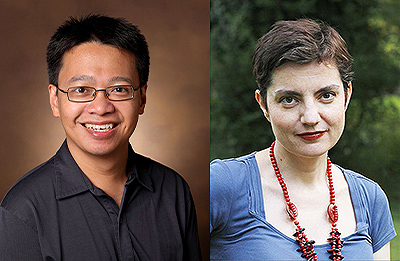 The dean of Basic Sciences has announced a new program that recognizes the research accomplishments and promise of early-career faculty, naming Manny Ascano (Biochemistry) and Marija Zanic (CDB) its inaugural recipients. The dean of Basic Sciences has announced a new program that recognizes the research accomplishments and promise of early-career faculty, naming Manny Ascano (Biochemistry) and Marija Zanic (CDB) its inaugural recipients.
New COVID-19 Research and Innovation Fund
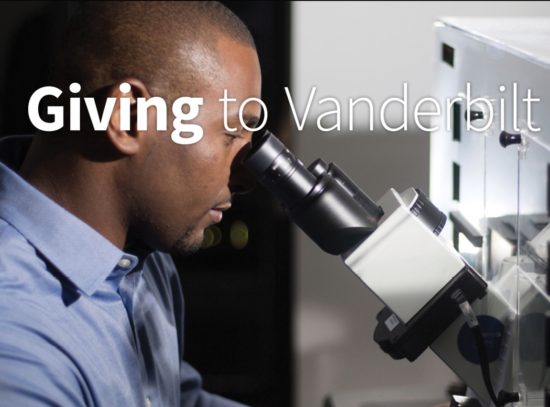 VU has established a fund designed to support COVID-19 researchers and innovators from across the university, including cross-disciplinary collaborations that address the medical, societal and interpersonal effects of the pandemic. Supported projects include the development of vaccine formulation to enhance resistance to COVID-19, the acquisition of personal protective equipment to safeguard health care workers on the front lines, the design of “smart” face masks to better identify and track COVID-19 infections, and more. VU has established a fund designed to support COVID-19 researchers and innovators from across the university, including cross-disciplinary collaborations that address the medical, societal and interpersonal effects of the pandemic. Supported projects include the development of vaccine formulation to enhance resistance to COVID-19, the acquisition of personal protective equipment to safeguard health care workers on the front lines, the design of “smart” face masks to better identify and track COVID-19 infections, and more.
Commencement updates
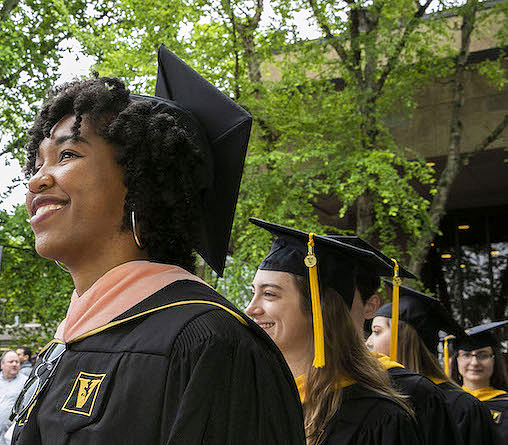 As you are aware, in lieu of a physical Commencement ceremony, Vanderbilt University will celebrate its graduates virtually. If you have any Commencement-related questions, this is the place to go to. Make sure to check back between May 4 and May 8 to see updates, including a special video message by Interim Chancellor Susan Wente that goes live on May 8 at 9:00 AM. As you are aware, in lieu of a physical Commencement ceremony, Vanderbilt University will celebrate its graduates virtually. If you have any Commencement-related questions, this is the place to go to. Make sure to check back between May 4 and May 8 to see updates, including a special video message by Interim Chancellor Susan Wente that goes live on May 8 at 9:00 AM.
Mental health in the times of the pandemic
 Whether you’re a student, postdoc/staff, or faculty, make sure to refer to the university’s mental health resources. Whether you’re a student, postdoc/staff, or faculty, make sure to refer to the university’s mental health resources.
Auxiliary mentor resource announced
Here in Basic Sciences, we know that it can be inherently difficult to approach someone within your supervision hierarchy with a problem, like your PI, your DGS, or your chair. With that in mind, we’ve launched a new auxiliary mentor resource, a list of willing mentors from across our programs and departments who are there to help you if you need someone to talk to. This program is open to second-year students and beyond. Read more about the program here.
Basic Sciences departments rank amongst best funded
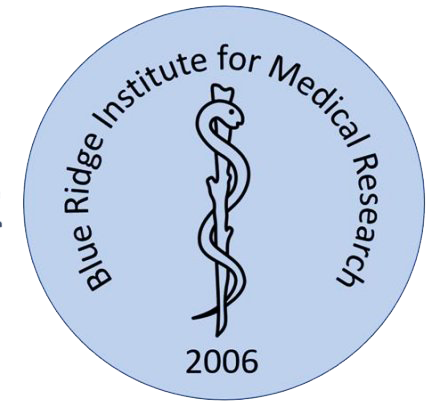 The Blue Ridge Institute for Medical Research has released its ranking of NIH funding to U.S. medical schools, divided by discipline. All four Basic Sciences departments ranked among the top 10 in the nation. The Department of Biochemistry ranked No. 1, Cell and Developmental Biology No. 2, Molecular Physiology and Biophysics No. 3, and Pharmacology No. 8. The Blue Ridge Institute for Medical Research has released its ranking of NIH funding to U.S. medical schools, divided by discipline. All four Basic Sciences departments ranked among the top 10 in the nation. The Department of Biochemistry ranked No. 1, Cell and Developmental Biology No. 2, Molecular Physiology and Biophysics No. 3, and Pharmacology No. 8.
VUSM awards honor Basic Sciences faculty
 The School of Medicine has just announced the 2020 recipients of its faculty awards. From amongst those recognized, four are Basic Sciences faculty members. Lourdes Estrada (Biochemistry), along with four colleagues, received the Denis M. O’Day Award for Team-Implemented Curriculum Reform. David Cortez (Biochemistry), Bill Tansey (CDB), and David Harrison (Medicine) were honored with the Stanley Cohen Award for Research Bridging Diverse Disciplines, the John H. Exton Award for Research Leading to Innovative Biological Concepts, and the Charles R. Park Award for Basic Research Revealing Insights into Physiology and Pathophysiology, respectively. The School of Medicine has just announced the 2020 recipients of its faculty awards. From amongst those recognized, four are Basic Sciences faculty members. Lourdes Estrada (Biochemistry), along with four colleagues, received the Denis M. O’Day Award for Team-Implemented Curriculum Reform. David Cortez (Biochemistry), Bill Tansey (CDB), and David Harrison (Medicine) were honored with the Stanley Cohen Award for Research Bridging Diverse Disciplines, the John H. Exton Award for Research Leading to Innovative Biological Concepts, and the Charles R. Park Award for Basic Research Revealing Insights into Physiology and Pathophysiology, respectively.
Umbrella programs recruit exceptional 2020 cohort
Despite the worldwide pandemic, the IGP and QCB programs had particularly strong recruitment seasons. With a record number of applications, these biomedical training programs are set to welcome over 80 students in the fall.
Vanderbilt students well represented in NSF GRFPs
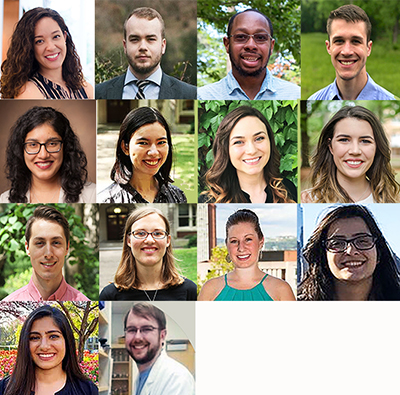 This year, 4 of the 23 Vanderbilt students who received coveted NSF GRFP fellowships were Basic Sciences graduate students: Ivette Perez (Biochemistry, Tina Iverson lab); Lee Cantrell (Chemical and Physical Biology, Kevin Schey lab); Jason Hughes (MPB, Gregor Neuert lab); and Darren Heintzman, who just finished his IGP year. Eight other students received honorable mentions: Kavya Sharman (Chemical and Physical Biology, Richard Caprioli lab), Sabrina Van Ravenstein (Biochemistry, James Dewar lab), Gabriella Robertson (CDB, Vivian Gama lab), Lindsey Guerin (Biochemistry, Emily Hodges lab), Brad Davidson (Cancer Biology, Ben Ho Park lab), Wendy Bindeman (Cancer Biology, Barbara Fingleton lab), Michelle Piazza (Neuroscience, Lisa Monteggia and Jeffrey Neul labs), and Reyhaneh Tirgar (Biological Sciences, Jared Nordman lab). Additionally, three incoming IGP students were also recognized: Niharika Loomba, who was awarded the grant, and Greg Konar and Kaeli Bryant, who received honorable mentions. This year, 4 of the 23 Vanderbilt students who received coveted NSF GRFP fellowships were Basic Sciences graduate students: Ivette Perez (Biochemistry, Tina Iverson lab); Lee Cantrell (Chemical and Physical Biology, Kevin Schey lab); Jason Hughes (MPB, Gregor Neuert lab); and Darren Heintzman, who just finished his IGP year. Eight other students received honorable mentions: Kavya Sharman (Chemical and Physical Biology, Richard Caprioli lab), Sabrina Van Ravenstein (Biochemistry, James Dewar lab), Gabriella Robertson (CDB, Vivian Gama lab), Lindsey Guerin (Biochemistry, Emily Hodges lab), Brad Davidson (Cancer Biology, Ben Ho Park lab), Wendy Bindeman (Cancer Biology, Barbara Fingleton lab), Michelle Piazza (Neuroscience, Lisa Monteggia and Jeffrey Neul labs), and Reyhaneh Tirgar (Biological Sciences, Jared Nordman lab). Additionally, three incoming IGP students were also recognized: Niharika Loomba, who was awarded the grant, and Greg Konar and Kaeli Bryant, who received honorable mentions.
Even more trainees earn fellowships
 The following trainees were also awarded fellowships from various organizations: David Wu (Human Genetics, Antonis Hatzopoulos lab) and Charles Smart (MPB, Meena Madhur lab) from the National Heart, Lung, and Blood Institute; Sarah Glass (Biochemistry, Fred Guengerich lab) from the National Institute of Arthritis, Musculoskeletal and Skin; and Spencer Waddle (CPB, Manus Donahue lab) from the National Institute of Neurological Disorders and Stroke. The following trainees were also awarded fellowships from various organizations: David Wu (Human Genetics, Antonis Hatzopoulos lab) and Charles Smart (MPB, Meena Madhur lab) from the National Heart, Lung, and Blood Institute; Sarah Glass (Biochemistry, Fred Guengerich lab) from the National Institute of Arthritis, Musculoskeletal and Skin; and Spencer Waddle (CPB, Manus Donahue lab) from the National Institute of Neurological Disorders and Stroke.
New Discoveries
Better than remdesivir?
 A team of VU and VUMC researchers, led by Mark Denison (Pediatrics) and in collaboration with other U.S. institutions, has just published a paper showing the antiviral potential of two drugs called EIDD-1931 and EIDD-2801 to treat a variety of coronavirus infections, including SARS-CoV-2. Viruses showing resistance to remdesivir are more highly inhibited by EIDD-1931. A team of VU and VUMC researchers, led by Mark Denison (Pediatrics) and in collaboration with other U.S. institutions, has just published a paper showing the antiviral potential of two drugs called EIDD-1931 and EIDD-2801 to treat a variety of coronavirus infections, including SARS-CoV-2. Viruses showing resistance to remdesivir are more highly inhibited by EIDD-1931.
New MYCN role in TNBC

A study led by a graduate student in Jennifer Pietenpol’s (Biochemistry) lab, Johanna Schafer, discovered a new role for the oncogene MYCN in triple-negative breast cancer, and found that a cocktail of BET and MEK inhibitors could help with treatment. The work landed the cover of the journal, Science Translational Medicine, with artwork designed by Schafer’s brother. A second paper reports a new combination of treatments for a subset of triple-negative breast cancer patients.
Lipid droplets and misleading mice
 Roland Stein (MPB) and his lab published work looking at lipid droplets in the cells of young or old people with or without diabetes. They found that older or diabetic people accumulated more lipid droplets, and that results in mice did not reflect the results in humans. Roland Stein (MPB) and his lab published work looking at lipid droplets in the cells of young or old people with or without diabetes. They found that older or diabetic people accumulated more lipid droplets, and that results in mice did not reflect the results in humans.
Modulation of myosin II “tunes” cell contractility
 The lab of Dylan Burnette (CDB) recently delineated specific roles for myosin-IIA and myosin-IIB, generating cortex tension and maintaining cortical stability, respectively, during cell division. The lab of Dylan Burnette (CDB) recently delineated specific roles for myosin-IIA and myosin-IIB, generating cortex tension and maintaining cortical stability, respectively, during cell division.
C. diff infections worse with exotoxin production
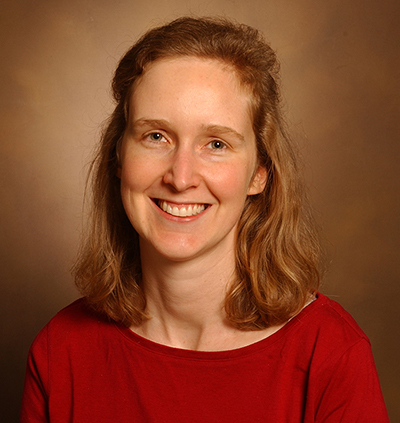 The Borden Lacy (PMI) research group recently found that Clostridioides difficile strains that produce the TcdB exotoxin cause damage to crypt base stem cells, leading to worse outcomes. The Borden Lacy (PMI) research group recently found that Clostridioides difficile strains that produce the TcdB exotoxin cause damage to crypt base stem cells, leading to worse outcomes.
Brain calcium channel activity dependent on protein interactions
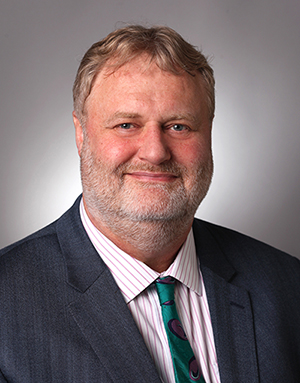 The lab of Roger Colbran (MPB) recently found that interactions between CaMKII and Shank3 stimulates the expression of c-Fos, a protein key in synaptic plasticity, brain development, and behavior. The lab of Roger Colbran (MPB) recently found that interactions between CaMKII and Shank3 stimulates the expression of c-Fos, a protein key in synaptic plasticity, brain development, and behavior.
Finding antibodies to combat viruses
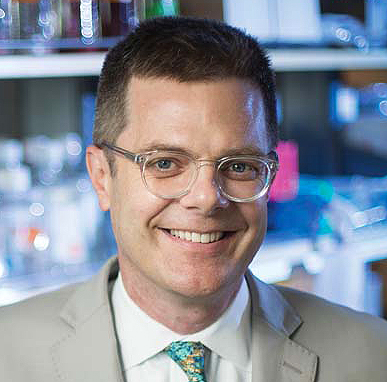 A recent paper from the lab of James Crowe (Pediatrics) described how his lab developed a new therapeutic cocktail of antibodies against Ebola, which has yet to be eradicated. A recent paper from the lab of James Crowe (Pediatrics) described how his lab developed a new therapeutic cocktail of antibodies against Ebola, which has yet to be eradicated.
Post-transplant diabetes possibly preventable, treatable
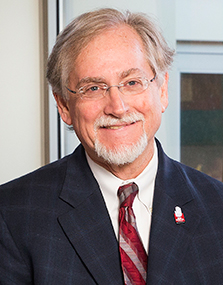 A collaboration led by the lab of Al Powers (Medicine) identified mechanisms by which post-transplant diabetes, a type of diabetes that arises after treating some patients with immunosuppressive drugs in preparation for a transplant, could be treatable and at least partially preventable. A collaboration led by the lab of Al Powers (Medicine) identified mechanisms by which post-transplant diabetes, a type of diabetes that arises after treating some patients with immunosuppressive drugs in preparation for a transplant, could be treatable and at least partially preventable.
New MudPIT clarifies protein interactions
 Through the use of a technique called Multidimensional Protein Identification Technology, the lab of Andrew Link (PMI) identified novel protein interactions and phosphorylation sites for S. cerevisiae mRNA translation proteins and protein complexes. Through the use of a technique called Multidimensional Protein Identification Technology, the lab of Andrew Link (PMI) identified novel protein interactions and phosphorylation sites for S. cerevisiae mRNA translation proteins and protein complexes.
New neurotoxicants identified
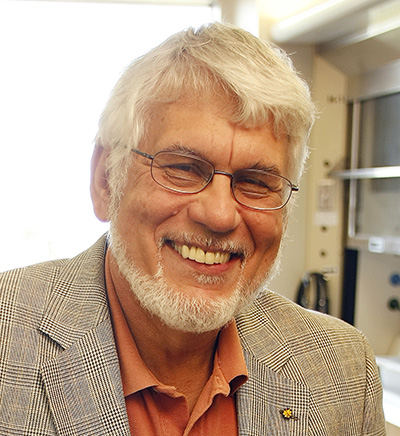 The lab of Ned Porter (Chemistry) tested a library of environmentally active chemicals and found two agricultural pesticides that showed a toxic effect on cholesterol metabolism in mice and human cells. The lab of Ned Porter (Chemistry) tested a library of environmentally active chemicals and found two agricultural pesticides that showed a toxic effect on cholesterol metabolism in mice and human cells.
Cotransporter mutation linked to higher energy production; gut epithelia
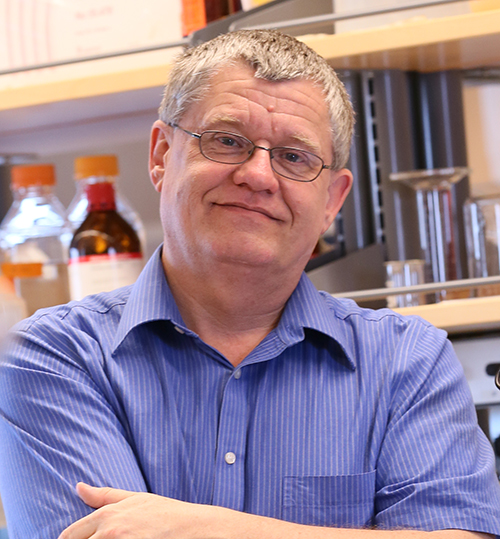
Eric Delpire (Anethesiology) and colleagues recently linked a patient mutation in the chloride, potassium, and sodium ion cotransporter NKCC1 to an increase in mitochondrial respiration and increased oxidative stress in the patient’s fibroblasts. A second paper found that mutant NKCC1, a sodium, potassium, and chloride transporter, impairs gut barrier function by affecting goblet cell mucus secretion and chronic inflammation.
Explaining bronchopulmonary dysplasia
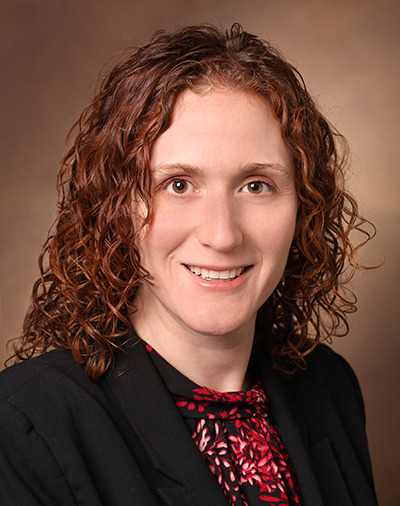 BPD affects pre-term infants born before 32 weeks of gestation. The lab of Jennifer Sucre (Pediatrics) discovered that an increase in Wnt5A expression in lung connective tissue cells contributes to BPD, suggesting that precise Wnt5A targeting could prevent or treat the acute lung injury. BPD affects pre-term infants born before 32 weeks of gestation. The lab of Jennifer Sucre (Pediatrics) discovered that an increase in Wnt5A expression in lung connective tissue cells contributes to BPD, suggesting that precise Wnt5A targeting could prevent or treat the acute lung injury.
Jobs
Postdoctoral fellow, Sandra Zinkel laboratory.
Postdoctoral fellow, John Karijlolich laboratory.
Research Assistant II, Innovative Translational Research Shared Resource.
Funding
External Funding Opportunities
Funding for COVID-19 research
Many new COVID-19-related funding opportunities are now available from both federal agencies and from private foundations. For an excellent and constantly updated list, visit the VU OVPR website. We urge you to be vigilant in following new funding announcements from the NIH and other groups. If you stumble upon new grant programs that you think may be of broad interest, please forward this info to Chuck Sanders and we will make sure they are appropriately posted.
Private funding opportunities
Corporate and Foundation Relations has put together an extensive list of funding opportunities from non-government organizations. This page is updated when new opportunities are identified.
NSF announces conference funding
The National Science Foundation is searching for new track topics for its new Convergence Accelerator structure. The request for information is for a track topic idea and a proposal for a conference designed to better understand the scientific and community needs, opportunities, and significant challenges for the suggested topic over the next two to five years. Submit your track idea by April 30. Conference proposals may be submitted at any time, but must be received by May 18 and have a budget under $100,000 to be considered for FY 2020 funds.
NIH guidance on research and grants
The NIH has published information for grant applicants and recipients of funding given the current coronavirus pandemic. They answer questions ranging from proposal submission to clinical trials and animal welfare, and more. The page is continually updated, so make sure to check back to see newly posted information.
Internal Funding Opportunities
VU Bridge Program
Primary Basic Sciences faculty with lapses in federal grant support are invited to apply for this program. The next submission deadline for Bridge/Realignment Grant funding is May 15. The instructions for submission of proposals have been completely overhauled and have been posted on the VBS website. It is critical that faculty who wish to apply follow the posted instructions.
| ![CAS - Basic Sciences - Internal E-Newsletter [Vanderbilt University]](https://cdn.vanderbilt.edu/vu-URL/wp-content/uploads/sites/119/2021/04/19142723/basically-speaking-banner-04-2021.jpg)
 The dean of Basic Sciences has announced a
The dean of Basic Sciences has announced a  VU has
VU has  As you are aware, in lieu of a physical Commencement ceremony, Vanderbilt University will celebrate its graduates virtually. If you have any Commencement-related questions,
As you are aware, in lieu of a physical Commencement ceremony, Vanderbilt University will celebrate its graduates virtually. If you have any Commencement-related questions,  Whether you’re a student, postdoc/staff, or faculty, make sure to refer to the university’s
Whether you’re a student, postdoc/staff, or faculty, make sure to refer to the university’s  The Blue Ridge Institute for Medical Research has released its
The Blue Ridge Institute for Medical Research has released its  The School of Medicine has just announced the
The School of Medicine has just announced the  This year, 4 of the
This year, 4 of the  The following trainees were also awarded fellowships from various organizations: David Wu (Human Genetics, Antonis Hatzopoulos lab) and Charles Smart (MPB, Meena Madhur lab) from the National Heart, Lung, and Blood Institute; Sarah Glass (Biochemistry, Fred Guengerich lab) from the National Institute of Arthritis, Musculoskeletal and Skin; and Spencer Waddle (CPB, Manus Donahue lab) from the National Institute of Neurological Disorders and Stroke.
The following trainees were also awarded fellowships from various organizations: David Wu (Human Genetics, Antonis Hatzopoulos lab) and Charles Smart (MPB, Meena Madhur lab) from the National Heart, Lung, and Blood Institute; Sarah Glass (Biochemistry, Fred Guengerich lab) from the National Institute of Arthritis, Musculoskeletal and Skin; and Spencer Waddle (CPB, Manus Donahue lab) from the National Institute of Neurological Disorders and Stroke. A team of VU and VUMC researchers, led by Mark Denison (Pediatrics) and in collaboration with other U.S. institutions, has just published a paper showing the
A team of VU and VUMC researchers, led by Mark Denison (Pediatrics) and in collaboration with other U.S. institutions, has just published a paper showing the 
 Roland Stein (MPB) and his lab published work looking at
Roland Stein (MPB) and his lab published work looking at  The lab of Dylan Burnette (CDB) recently
The lab of Dylan Burnette (CDB) recently  The Borden Lacy (PMI) research group recently found that Clostridioides difficile
The Borden Lacy (PMI) research group recently found that Clostridioides difficile  The lab of Roger Colbran (MPB) recently found that interactions between
The lab of Roger Colbran (MPB) recently found that interactions between  A recent paper from the lab of James Crowe (Pediatrics) described how his lab developed a new
A recent paper from the lab of James Crowe (Pediatrics) described how his lab developed a new  A collaboration led by the lab of Al Powers (Medicine) identified mechanisms by which
A collaboration led by the lab of Al Powers (Medicine) identified mechanisms by which  Through the use of a technique called Multidimensional Protein Identification Technology, the lab of Andrew Link (PMI) identified
Through the use of a technique called Multidimensional Protein Identification Technology, the lab of Andrew Link (PMI) identified  The lab of Ned Porter (Chemistry) tested a library of environmentally active chemicals and found two agricultural pesticides that showed a
The lab of Ned Porter (Chemistry) tested a library of environmentally active chemicals and found two agricultural pesticides that showed a 
 BPD affects pre-term infants born before 32 weeks of gestation. The lab of Jennifer Sucre (Pediatrics)
BPD affects pre-term infants born before 32 weeks of gestation. The lab of Jennifer Sucre (Pediatrics) 

 Back to Basics lecture
Back to Basics lecture Vanderbilt Genome Editing Resource Cryopreservation Services
Vanderbilt Genome Editing Resource Cryopreservation Services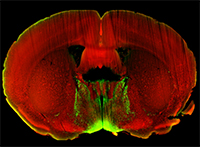 The image shown here is a forebrain cross section derived from a 3D reconstruction of light-sheet fluorescence images of an optically cleared mouse brain. Using a technique called iDISCO+, postdoc Kit-Yi Yam and Research Instructor Jose Maldonado (Richard Simerly lab, MPB) optically cleared a mouse brain and immunohistochemically labeled it for an axonal marker (green) and a neuronal marker (red). They then imaged the entire brain to reveal the distribution of axonal projections from a subpopulation of hypothalamic neurons involved in feeding.
The image shown here is a forebrain cross section derived from a 3D reconstruction of light-sheet fluorescence images of an optically cleared mouse brain. Using a technique called iDISCO+, postdoc Kit-Yi Yam and Research Instructor Jose Maldonado (Richard Simerly lab, MPB) optically cleared a mouse brain and immunohistochemically labeled it for an axonal marker (green) and a neuronal marker (red). They then imaged the entire brain to reveal the distribution of axonal projections from a subpopulation of hypothalamic neurons involved in feeding.

